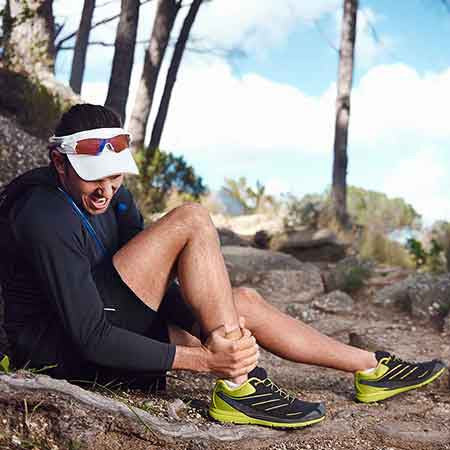🚚 Free shipping on orders over $60 🚚

How to Treat and Prevent a Snakebite While Trail Running
Posted on
We are not trying to put you off trail running. Getting bitten by a snake is very unlikely but it is vital to know exactly what to do if a snake does bite you while out running. You may think you know what to do but as research has improved over the years, scientists have been able to give better treatment advice for snake bites.
Snake Bite Treatment
The goal here is "transport for evaluation". This means getting to a hospital as quickly and calmly as possible where you can receive anti-venom if needed.
- It may be hard but try to stay calm. A lot of injuries happen when people panic in the moments after a snake bite.
- Move 20 metres away from where the bite happened.
- Sit down. Venom can rapidly drop blood pressure and cause fainting. If fainting does occur it shouldn't last for more than a few minutes.
- Pull out your phone and call 000 or the local park headquarters. Store the number in your phone before you go, you could need it for a number of reasons while out running.
- Apply pressure and immobilize. If you have a First Aid Kit, use the bandage to apply firm pressure but not enough to restrict blood flow, the aim is to restrict lymphatic movement. In a pinch, a scarf or other item of clothing can be used. Unless moving is necessary, remain still until help arrives.
- No phone or signal? Have your running buddy run for help.
- No running buddy? Walk slowly and calmly to the closest place with people. Blow your rescue whistle if you have one.

Do's
- Stay calm. (Easier said than done, I know. Try taking deep breaths and sitting down.)
- Remove any rings, watches etc from bitten limb. There will be a lot of swelling.
- Circle bite and write down the time it happened using your sharpie if you have one. Circle the outline of the swelling every 15 minutes, this will help evaluate the severity of the bite at the hospital. If you have bandaged the area, mark the location of the bite over the bandage to assist emergency services personnel.
- Walk slowly if you need to move.
- Drink water.
- Eat calories if you have any.
- Be extra cautious if you absolutely have to drive for help, the venom can rapidly affect your ability to drive.
Donts
- Try to remove the venom yourself.
- Tie a cord or tight bandage around the bite.
- Run for help.
- Chase the snake away.
Snake Bite Prevention
- Be aware that there could be snakes where you are running.
- Avoid long grass where possible.
- Step on logs and rocks instead of over them, this could give you an extra second to act accordingly if there is a snake underneath.
- Be careful when sitting on logs or rocks.
- If you see a snake do not try to chase it away, this is when most bites occur.
- If you run with headphones have at least one bud out.
- Snakes love to warm up in sunny patches so be extra cautious when entering these areas.
- Be extra alert in the mornings, evenings and when near water, snakes love these things too.

Add These Items to Your Running Kit
- Mobile phone (with the number for the local park headquarters saved in the contacts.)
- Small sharpie.
- Rescue whistle.
- Small bandage.
Reasons Not to Worry Too Much
- Snake bites are very rare.
- Even if you are bitten, fatalities are even rarer. In Australia, about 3,000 people are bitten each year but on average only one or two will prove to be fatal. (http://www.anaesthesia.med.usyd.edu.au/resources/venom/snakebite.html)
- You do have a bit of time. It is uncommon to die from a snake bite within the first four hours.
Have anything to add? Please comment below!
Written by Andy Hine, Founder of TrailSurvivor
Quick links
Contact
81-83 Campbell Street, Surry Hills, NSW 2010
support@trailsurvivor.com.au
© Copyright 2026, TrailSurvivor.
